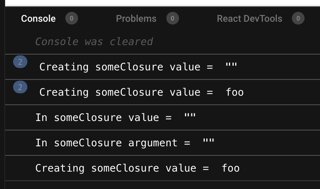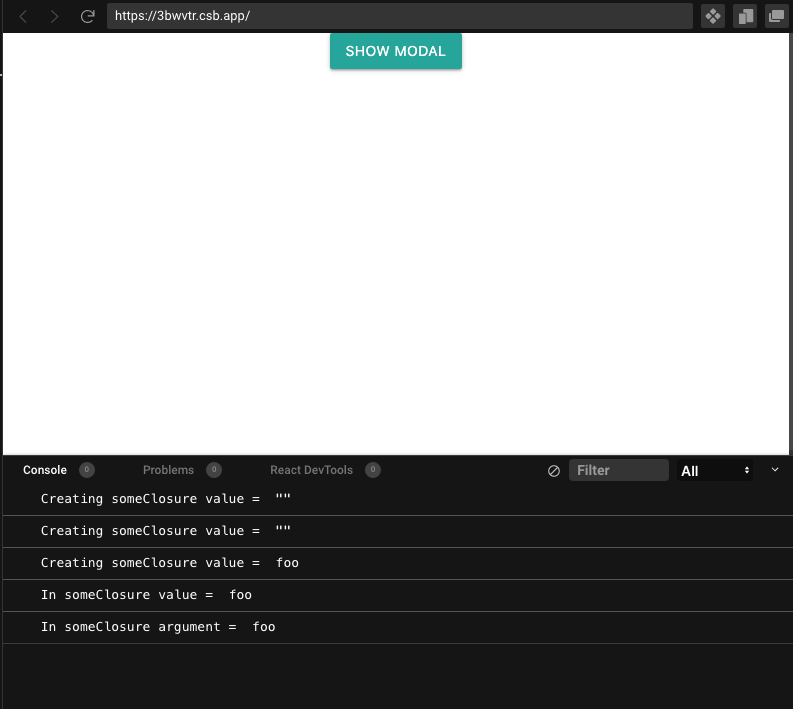I want to use a state variable (value) when a modal is closed. However, any changes made to the state variable while the modal is open are not observed in the handler. I don't understand why it does not work.
or
- Open the modal
- Click 'Set value'
- Click 'Hide modal'
- View console log.
My understanding is that the element is rendered when the state changes (Creating someClosure foo), but then when the closure function is called after that, the value is still "". It appears to me to be a "stale value in a closure" problem, but I can't see how to fix it.
I have looked at explanations regarding how to use useEffect, but I can't see how they apply here.
Do I have to use a useRef or some other way to get this to work?
[Edit: I have reverted the React version in CodeSandbox, so I hope it will run now. I also implemented the change in the answers below, but it did not help.]
import { useState } from "react";
import { Modal, Button } from "react-materialize";
import "./styles.css";
export default function App() {
const [isOpen, setIsOpen] = useState(false);
const [value, setValue] = useState("");
console.log("Creating someClosure value =", value);
const someClosure = (argument) => {
console.log("In someClosure value =", value);
console.log("In someClosure argument =", argument);
setIsOpen(false);
};
return (
<div className="App">
<Button onClick={() => setIsOpen(true)}>Show modal</Button>
<Modal open={isOpen} options={{ onCloseStart: () => someClosure(value) }}>
<Button onClick={() => setValue("foo")}>Set value</Button>
<Button onClick={() => setIsOpen(false)}>Hide modal</Button>
</Modal>
</div>
);
}




